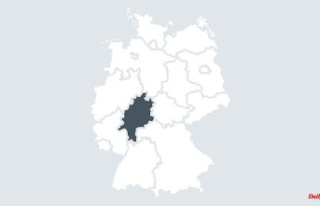"What a gun is to the Americans, that's turf to the Germans," Kretschmann says from time to time. When the FDP prevented the speed limit in traffic lights, he wanted to give it up. But now the biggest energy crisis is looming for a long time and old and new ideas are in demand.
Stuttgart/Munich (dpa/lsw) - In view of the looming energy crisis and high fuel costs, according to Baden-Württemberg's Prime Minister Winfried Kretschmann, it is now finally time for a speed limit on motorways. "That would have an immediate effect, that's an immediate saving," said the Green politician on Thursday at a discussion event in the "Süddeutsche Zeitung" in Munich. "To jump over the shadows, at least for two years, would be worth a discussion," he said to the coalition partner FDP in the federal government, which is opposed to a speed limit. "We Greens really jump over some ideological shadow every week. I can't see that in other parties."
Bavaria's head of government Markus Söder (CSU) and the FDP in the southwest promptly rejected the demand for a speed limit on motorways, while the state SPD backed Kretschmann. "This proposal by the Prime Minister makes sense," said SPD party and parliamentary group leader Andreas Stoch.
On the other hand, Söder explained at the "SZ" event: "The speed limit does not generate any electricity at all." That is not a solution for the impending risks in the coming winter. He again spoke out in favor of longer operating times for nuclear power plants, which are actually supposed to be shut down at the end of the year. In view of the impending gas shortage due to the Ukraine war, all possibilities must be used to take countermeasures, one should not engage in "gourmetism". For safety reasons, Kretschmann opposed longer terms: "I don't think about it anymore."
FDP faction leader Hans-Ulrich Rülke called the arguments of the Greens on the speed limit and nuclear power "completely irrational". It would make more sense to let the existing nuclear reactors run longer, because electricity from gas-fired power plants could be replaced by electricity from nuclear energy. "Apparently Kretschmann wants to help his green transport minister, who yesterday presented a charter against motorists," said Rülke, referring to Winfried Hermann's 10-point plan for more climate protection in traffic.
He accused the Greens of repeatedly causing massive damage to traffic lights at the federal level: "The Greens signed the coalition agreement that there should be no speed limit, and now they come around the corner every other day with this slow-moving product." The FDP traffic expert Christian Jung added: "Bad suggestions don't get better if you keep repeating them. Rather, we have to offer people attractive alternatives that allow them to leave their cars behind."
Kretschmann and Söder warned of energy bottlenecks in sometimes drastic words. "I think at the moment that the gas supply is not secured," said Söder. "It's a lot worse than most people think." For some people, life will change fundamentally again. Söder warned of a further explosive increase in energy costs and, as a result, of a decline in the middle class. At the same time, there is a risk of a "heart attack" for the economy. Kretschmann said it shouldn't be the case that millions of jobs should "collapse" all at once.
Three months ago, the Federal Environment Agency (UBA) proposed various measures to be significantly more economical with energy. This also included driving less and, above all, more slowly. If drivers reduced their speed to a maximum of 100 kilometers per hour on freeways and 80 km/h on out-of-town roads, that would save around 2.1 billion liters of fossil fuel. According to the calculations, this immediately saves around 3.8 percent of the fuel consumed in the transport sector.












